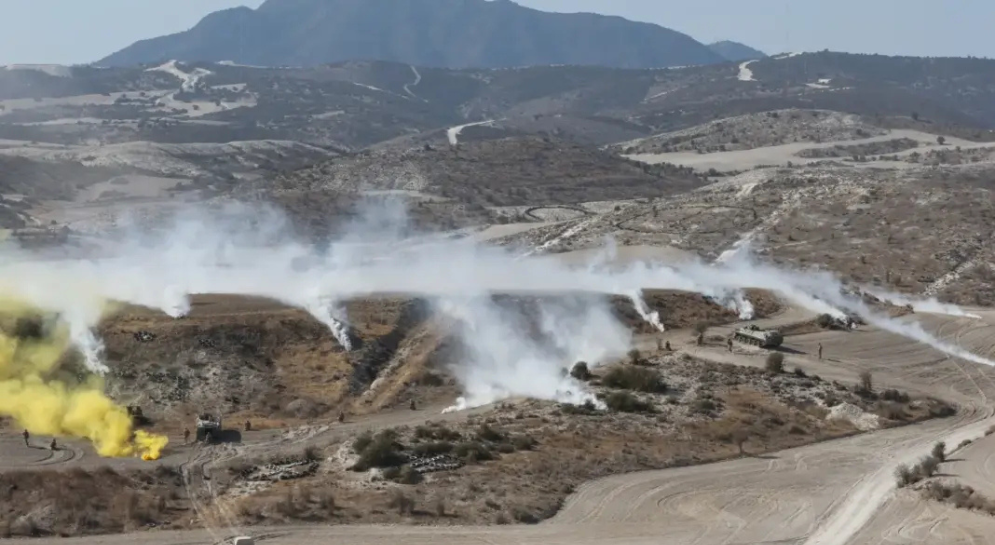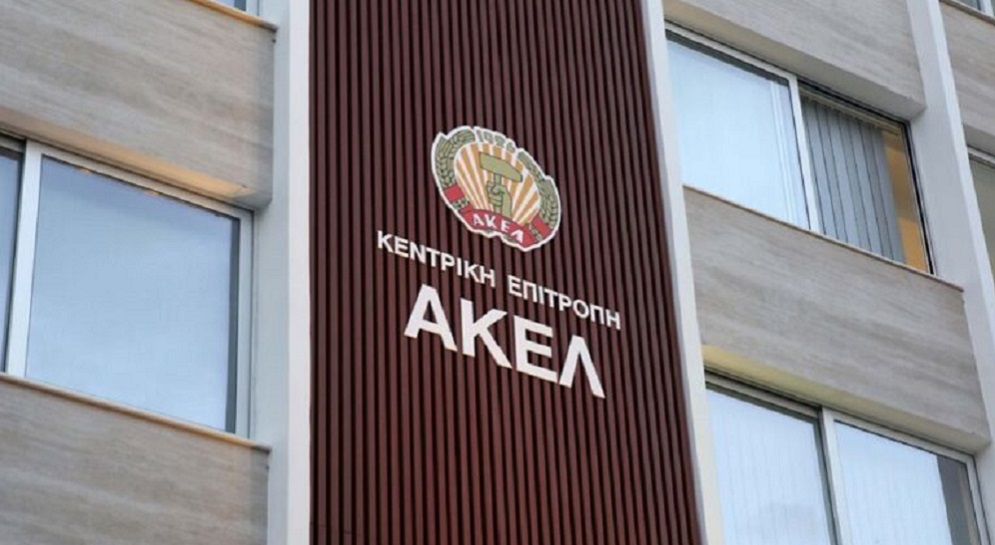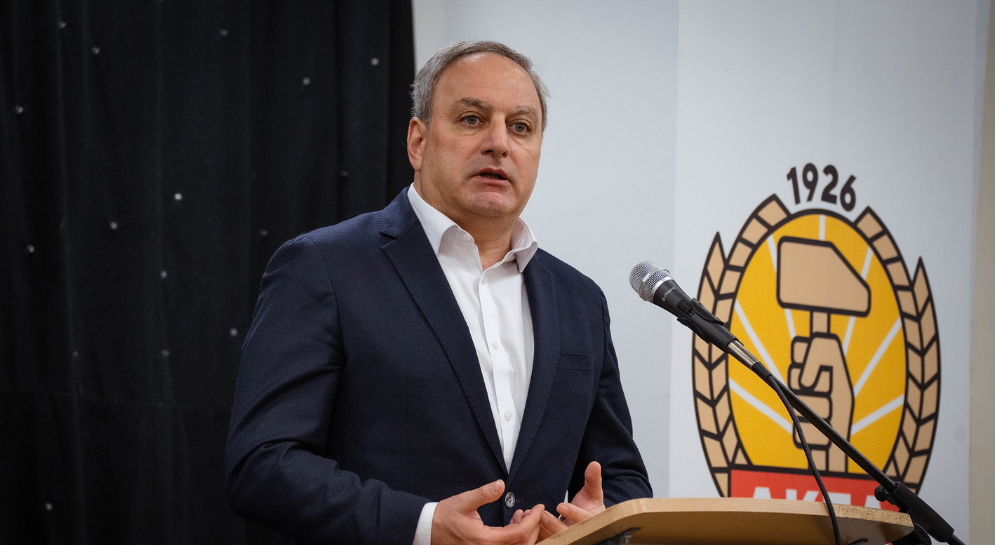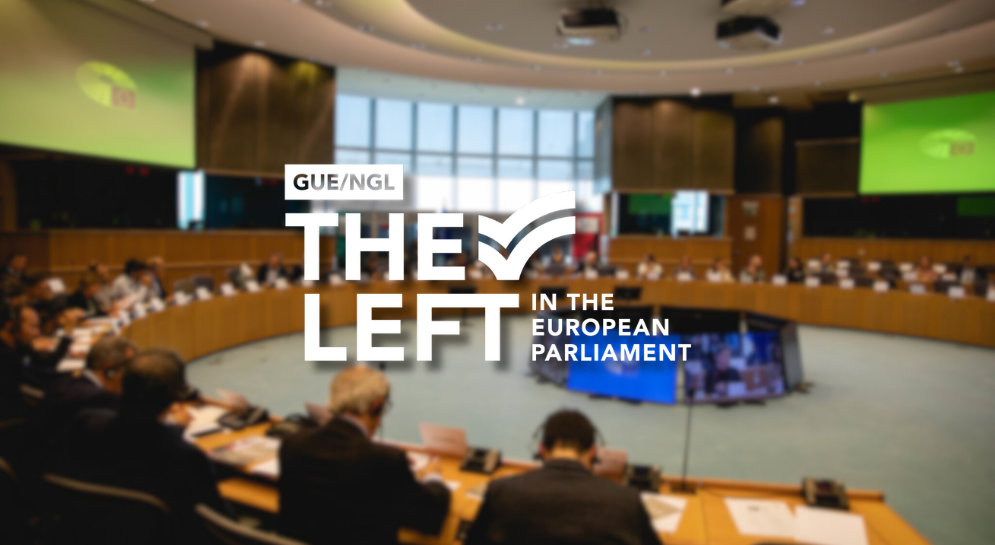
Interview with AKEL Political Bureau member Eleni Mavrou
- Two different worlds clash with each other in the parliamentary elections
- In the informal five-party meeting we must be prepared for every scenario
28th March 2021, ‘Haravgi’ newspaper
Following the European Council conclusions on the Cyprus problem, the “27” remain committed to an overall solution. What should we expect from Turkey in the informal five-party meeting?
EM: The Declaration by the members of the European Council tries to reach a balance between the different approaches of the member states on the stand that should be taken towards Turkey, with the position of adopting a positive agenda for Turkey currently prevailing.
As for the Cyprus problem is concerned, although a comprehensive solution to the Cyprus problem is supported, there is no explicit reference to the agreed basis of the solution to the Cyprus problem. At this stage it seems that Turkey is not ready to radically change the way it perceives the Eastern Mediterranean region in general and the Cyprus problem more specifically. In the informal five-party meeting in Geneva, we must be prepared for all scenarios – a complete deadlock or an agreement to resume the talks, but also for a decision to continue the exploratory dialogue, possibly accompanied by an agreement on the implementation of confidence-building measures.
As a politician and a refugee, do you think a possible collapse in April would be catastrophic?
EM: Things won’t be easy. A precondition for us to be able to go to negotiations is that a common ground should exist, and for that to happen Turkey must abandon its unacceptable demands, provided of course that N. Anastasiades will attend the informal five-party meeting with consistency to the convergences agreed. There is certainly no room for any more experimentations and regressions. The Cyprus problem is at a critical crossroads. And I am referring mainly to the danger of the current situation being consolidated with all that would entail. Developments since 1974 demonstrate that it is a mistake to consider the status quo as static.
On the “golden” passports scandal. How do you feel as a citizen first and foremost about our country being discredited internationally, especially with the involvement of the President of the Republic himself?
EM: Anger…great anger. In recent years, an unprecedented mechanism plundering the national wealth by a small elite has operated in Cyprus, which to serve its interests didn’t even take into account neither the country’s shaming, nor the danger of Cyprus’ economy – once again – being shattered. And the saddest thing of all is that the President of the Republic, who led Cyprus into the highest point of disrepute, didn’t find the courage to take on his responsibilities. Since 2015, the warnings that were being issued were continuous. The government ruling forces, however, chose to pursue delays, distortion and attacks on those who criticized them, enabling the “feast” with the “golden” passports to continue.
But corruption is not a new phenomenon…
EM: I don’t claim that corruption is a phenomenon that has just appeared lately. The difference is that now the agencies of corruption draw support from the high echelons of power. We must therefore all realize that a society that tolerates such phenomena, or even worse, reproduces them, is not a healthy society. And if, by any case, we back down in the battle against entanglement and interwoven interests, then we’re in serious trouble.
In some of the mass demonstrations held recently in Nicosia, we saw unprecedented violence by repressive forces. What are the government’s aims with this practice?
EM: A government that sends police to beat up civilians in peaceful demonstrations is a government that has crossed the line set by the rule of law and democracy itself. No one has assumed responsibility for the fact that the government turned the state, on its orders, into a state that smashes heads and blinds people who are protesting peacefully.
So the conclusion, naturally, is that the Anastasiades-DISY government is resorting to authoritarianism and repression, because that is all it has left in its attempt to cover up the corruption and the dead ends in its political choices. Under the pretext of the pandemic, they want to silence any voice of protest against them. After all, the “politics of fear”, the constant threat that if you do not consent to authoritarian policies you will face the worst, is the most effective way to create a society under supervision, ready to abandon every notion of rights. Defending democracy is therefore the responsibility of each and every one of us.
With regards the issue of “women’s rights and sexual abuse”. What must the state change substantially in order to establish a web of protection?
EM: There are many women who have experienced sexual harassment, abuse and rape. But there are many more women who have justified it and have hidden it under the carpet. Every form of violence against women has its roots in various causes. Sexism, rising female unemployment and job insecurity, economic dependence, fear of being accused of “looking for it” and the shame that (paradoxically) accompanies the victim but not the perpetrator, unfortunately “silences” the victims. Denouncing violence is an act of strength and courage. The state must respond to this courage by taking specific measures. Violence is not combated through empty talk and expressing wishes.
In Cyprus, the colonial definition of rape changed only in October 2020, because of a draft bill submitted by AKEL. Only recently, once again due to a draft law tabled by AKEL, was “cyber rape” criminalized. Cyprus has signed various treaties on combatting violence against women, but there are many “commitments” that remain only on paper. How is the Council of Europe Convention on Preventing and Combating Violence against Women being implemented in practice? How is the degree of danger of complaints made at police stations assessed? Who insists on action plans, bills, structures to provide support and training campaigns being kept in government drawers?
These things must all be done – all this and much more, so as to establish a web of protection for women in this country.
How would you respond to a voter who says that nothing can be changed, that “they are all the same”, so he/she won’t go to vote?
EM: We live in difficult times. Society is being impoverished, democracy threatened and partition is being consolidated. This is not the Cyprus we want to envision. But things do not change with meaningless wishes and by making pleas. Elections might not be the only way, but they are an instrument we have in our hands and we must not give up.
AKEL-Left-New Forces is always fighting our battles – both inside and outside Parliament, next to and on the side of the underprivileged, next to the small and medium businesses, next to the working people and to the unemployed. We do not engage in populism, nor do we say what people want to hear to serve petty-party expediencies. We admit our weaknesses, learn from our mistakes and try to improve ourselves. So when you hear the narrative “all politicians are the same”, do not believe them. Everyone has their own record in this country. And that’s precisely what we should be judged on.
In the parliamentary elections this May, the philosophies that defend people and the environment, on the one hand, and the interests of the privileged few, on the other, will clash. Those who with ease sell out homelands on the one hand and engage in demagogic pseudo-patriotic nationalist sloganeering will clash with those who in Cyprus have always stood for “One homeland, One people”.
For us, the people of Kyrenia (occupied district), this is precisely what is at stake. We do not forget how much we are deprived of as a result of the continuing stalemates in the efforts to solve the Cyprus problem. Nor do we forget how much we have to gain from the solution and reuniting our country. The nationalist concept (“Once more, as years and time go by, once more they shall be ours”) leaves us no prospect of survival. Only a viable solution to the Cyprus problem on the basis of a bi-zona, bi-communal federation leaves open the prospect of returning to our land.




